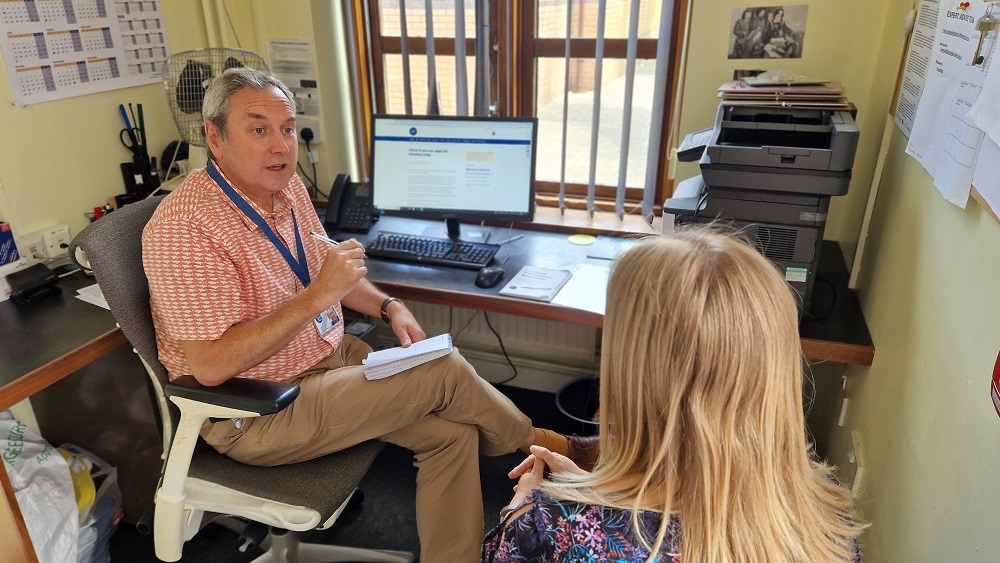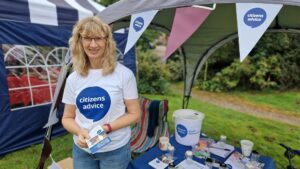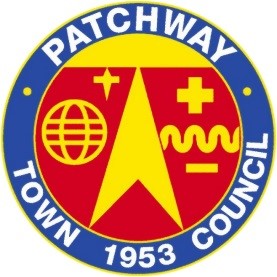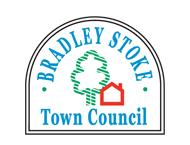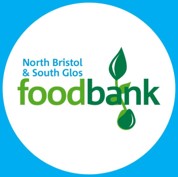Our Stories
Case Study
Date: December 2023
A client has thanked Citizens Advice South Gloucestershire – saying the charity helped her when no one else would.
The client, who has a three-year-old child, has mental and physical health issues meaning she struggles being out of the house.
She needed help filling in a Work Capability Assessment (WCA) form in relation to her Universal Credit claim.
She said she had asked a number of professionals including her counsellor for help with this but had been “passed around” and not received the help she needed.
After contacting the Citizens Advice Adviceline, she was put in touch with Citizens Advice South Gloucestershire.
Our Adviser Jacky was able to complete the WCA form with her over the phone.
The client was recently informed she has been awarded Limited Capability for Work-Related Activity (LCWRA) status – the best possible outcome for her, meaning she will get an extra amount of money each month.
The client has said this will allow her to pay for private healthcare as she is struggling to get the help she needs on the NHS.
In a heartfelt email of thanks to Jacky, the client wrote: “I cannot thank you enough for the help you have given me.
“I’m so grateful for your assistance and am getting emotional writing this.
“You have given me the light I needed to see at this awful time in my life.”
The client added: “The fact I have been made LCWRA has relieved a lot of stress and hopefully I can now pay for private healthcare.
“Hopefully I can get the help I need, and get a different counsellor and different therapy so I can get better and move towards a different job.
“I would describe the service I received as excellent – even more so because I have spoken to lots of professionals and no one would help me.
“The help I have received from Citizens Advice South Gloucestershire makes me emotional – they have saved my life.”
Case Study

Date: July 2023
A client described the service she received from Help To Claim as “excellent” and praised our Adviser Peter’s communication skills after he was able to provide clarity on claiming New Style Employment and Support Allowance (nsESA) alongside Universal Credit (UC).
The client has had to stop work for health reasons and had already made a claim for Universal Credit. But she called Help To Claim to find out whether she should be claiming nsESA – either instead or at the same time as UC.
She talked through her situation with Peter and he was able to perform calculations to show what she would be entitled to.
He found she wouldn’t receive any more money by claiming nsESA as well as UC – as the amount of nsESA she receives would be deducted from her UC.
But nsESA payments – of £84.80 per week – would begin sooner and would come more regularly every two weeks rather than monthly. She would also receive £103.40 of UC each month.
She said: “Peter was excellent. He was very welcoming on the phone call. He was very empathetic. I found his communication skills to be superb. Ten out of ten.
“It’s an ongoing problem but the advice allowed me to take the next step forward.”
Case Study

Date: July 2023
Our Adviser Kate was able to help a Foodbank Project client receive a backdated payment of more than £4,000. This came despite Universal Credit initially saying the client was not eligible for the payment.
The client is a single parent with three children, one of whom receives disability living allowance (DLA). The client receives Universal Credit.
The child’s condition deteriorated and as a result, the Department for Work and Pensions increased the DLA payment in January 2022.
The client’s Universal Credit did not increase – even though she was eligible for a higher amount due to the change in her child’s DLA payment.
The client was told by Universal Credit earlier this year that they had been underpaying her benefit since the change in January 2022; but they would only backdate the increased amount for one month – it seemed they were treating the case as a late-reported change of circumstances instead of a supersession.
Kate identified this was a mistake – and advised the client to challenge the decision from Universal Credit not to backdate the increased payment.
Following a review, Universal Credit agreed to pay the full backdated amount of more than £4,000.
The client said: “I am really, really pleased. Kate is brilliant and it’s not the first time she has helped me.
“I wouldn’t have got the backdated payment without her. It will help us massively.”
Case Study

Date: July 2023
A big congratulations to our Adviser Linda for helping a client get £1,836 in debt written off – which she thinks they would never have been able to repay.
The client – who has mental health problems and learning difficulties – had been making regular monthly repayments of £114.40 on a bank loan, but became unable to repay after losing their job.
They spoke to the bank who agreed to pause repayments for three months – but when repayments were due to begin again, they would be at a higher rate than previously.
The client would not have been eligible for a Debt Relief Order – but Linda pursued the option of using a Debt And Mental Health Evidence form.
This was successful in getting the debt written off and will make a huge difference for the client who would not have been able to pay anything towards it, Linda said.

